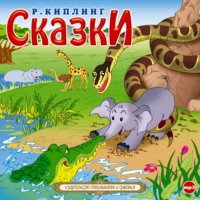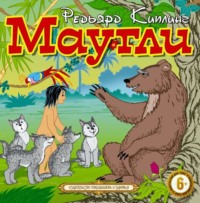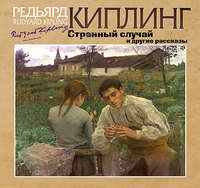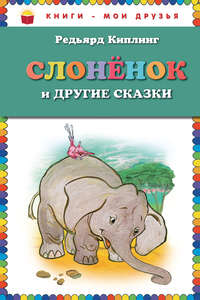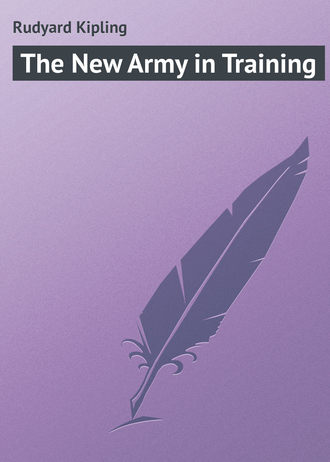 полная версия
полная версияThe New Army in Training
AN UNRELATED DETACHMENT
I left McGill, Queen’s, and Toronto still digging in their trench, which another undergraduate, mounted and leading a horse, went out of his way to jump standing. My last glimpse was of a little detachment, with five or six South African ribbons among them, who were being looked over by an officer. No one thought it strange that they should have embodied themselves and crossed the salt seas independently as ‘So-and-So’s Horse.’ (It is best to travel with a title these days.) Once arrived, they were not at all particular, except that they meant to join the Army, and the lonely batch was stating its qualifications as Engineers.
‘They get over any way and every way,’ said my companion. ‘Swimming, I believe.’
‘But who was the So-and-So that they were christened after?’ I asked.
‘I guess he was the man who financed ‘em or grub-staked ‘em while they were waiting. He may be one of ‘em in that crowd now; or he may be a provincial magnate at home getting another bunch together.’
THE VANGUARD OF A NATION
Then I went back to the main camp for a last look at that wonderful army, where the tin-roofed messes take French conversation lessons with the keen-faced French-Canadian officers, and where one sees esprit-de-corps in the making. Nowhere is local sentiment stronger than in Canada. East and West, lake and maritime provinces, prairie and mountain, fruit district and timber lands – they each thrill to it. The West keeps one cold blue open-air eye on the townful East. Winnipeg sits between, posing alternately as sophisticated metropolis and simple prairie. Alberta, of the thousand horses, looks down from her high-peaked saddle on all who walk on their feet; and British Columbia thanks God for an equable climate, and that she is not like Ottawa, full of politicians and frozen sludge. Quebec, unassailable in her years and experience, smiles tolerantly on the Nova Scotian, for he has a history too, and asks Montreal if any good thing can come out of Brandon, Moose Jaw, or Regina. They discuss each other outrageously, as they know each other intimately, over four thousand miles of longitude – their fathers, their families, and all the connections. Which is useful when it comes to sizing up the merits of a newly-promoted non-commissioned officer or the capacities of a quarter-master.
As their Army does and suffers, and its record begins to blaze, fierce pride of regiment will be added to local love and the national pride that backs and envelops all. But that pride is held in very severe check now; for they are neither provinces nor tribes but a welded people fighting in the War of Liberty. They permit themselves to hope that the physique of their next contingent will not be worse than that of the present. They believe that their country can send forward a certain number of men and a certain number behind that, all equipped to a certain scale. Of discomforts endured, of the long learning and relearning and waiting on, they say nothing. They do not hint what they will do when their hour strikes, though they more than hint their longing for that hour. In all their talk I caught no phrase that could be twisted into the shadow of a boast or any claim to superiority, even in respect to their kit and outfit; no word or implication of self-praise for any sacrifice made or intended. It was their rigid humility that impressed one as most significant – and, perhaps, most menacing for such as may have to deal with this vanguard of an armed Nation.
V
INDIAN TROOPS
Larai meṅ laddu nahiṅ batte (War is not sugar-plums). —Hindi Proverb.
Working from the East to the West of England, through a countryside alive with troops of all arms, the car came at dusk into a cathedral town entirely inhabited by one type of regiment. The telegraph-office was an orderly jam of solid, large, made men, with years of discipline behind them and the tan of Indian suns on their faces – Englishmen still so fresh from the troopships that one of them asked me, ‘What’s the day o’ the month?’ They were advising friends of their arrival in England, or when they might be expected on short leave at the week’s end; and the fresh-faced telegraph girls behind the grilles worked with six pairs of hands apiece and all the goodwill and patience in the world to back them. That same young woman who, with nothing to do, makes you wait ten minutes for a penny stamp while she finishes a talk with a lady-friend, will, at a crisis, go on till she drops, and keep her temper throughout. ‘Well, if that’s her village,’ I heard one of the girls say to an anxious soul, ‘I tell you that that will be her telegraph-office. You leave it to me. She’ll get it all right.’
He backed out, and a dozen more quietly took his place. Their regiments hailed from all the old known stations of the East and beyond that into the Far East again. They cursed their cool barrack accommodation; they rejoiced in the keen autumn smells, and paraded the long street all filled with ‘Europe shops’; while their officers and their officers’ wives, and, I think, mothers who had come down to snatch a glimpse of their boys, crowded the hotels, and the little unastonished Anglo-Indian children circulated round the knees of big friends they had made aboard-ship and asked, ‘Where are you going now?’
One caught scraps of our old gipsy talk – names of boarding-houses, agents’ addresses: ‘Milly stays with mother, of course.’ ‘I’m taking Jack down to school to-morrow. It’s past half-term, but that doesn’t matter nowadays’; and cheery farewells between men and calm-eyed women. Except for the frocks, it might have been an evening assembly at any station bandstand in India.
Outside, on the surging pavements, a small boy cried: ‘Paper! Evenin’ paper!’ Then seductively: ’Kargus!’
‘What?’ I said, thinking my ears had cheated me.
‘Dekko! Kargus!’ said he. (’Look here! Paper!’)
‘Why on earth d’you say that?’
‘Because the men like it,’ he replied, and slapped an evening paper (no change for a penny) into the hand of a man in a helmet.
Who shall say that the English are not adaptable?
The car swam bonnet-deep through a mile of troops; and a mile up the road one could hear the deep hum of all those crowded streets that the cathedral bells were chiming over. It was only one small block of Anglo-India getting ready to take its place in the all-devouring Line.
SCREW-GUNS
An hour later at – (Shall we ever be able to name people and places outright again?) the wind brought up one whiff – one unmistakable whiff – of ghi. Somewhere among the English pines that, for the moment, pretended to be the lower slopes of the Dun, there were native troops. A mule squealed in the dark and set off half-a-dozen others. It was screw-guns – batteries of them, waiting their turn also at the game. Morning showed them in their immaculate lines as though they had just marched in from Jutogh – little, low guns with their ammunition; very big English gunners in disengaged attitudes which, nevertheless, did not encourage stray civilians to poke and peer into things; and the native drivers all busied over their charges. True, the wind was bitter, and many of the drivers had tied up their heads, but so one does at Quetta in the cold weather – not to mention Peshawur – and, said a naik of drivers: ‘It is not the cold for which we have no liking. It is the wet. The English air is good, but water falls at all seasons. Yet notwithstanding, we of this battery (and, oh, the pride men can throw into a mere number!) have not lost one mule. Neither at sea nor on land have we one lost. That can be shown, sahib.’
Then one heard the deep racking tobacco-cough in the lee of a tent where four or five men – Kangra folk by the look of them – were drinking tobacco out of a cow’s horn. Their own country’s tobacco, be sure, for English tobacco… But there was no need to explain. Who would have dreamed to smell bazar-tobacco on a south country golf links?
A large proportion of the men are, of course, Sikhs, to whom tobacco is forbidden; the Havildar Major himself was a Sikh of the Sikhs. He spoke, of all things in this strange world, of the late Mr. M. McAuliffe’s monumental book on the Sikh religion, saying, not without warrant, that McAuliffe Sahib had translated into English much of the Holy Book – the great Grunth Sahib that lives at Amritzar. He enlarged, too, on the ancient prophecy among the Sikhs – that a hatted race should some day come out of the sea and lead them to victory all the earth over. So spoke Bir Singh, erect and enormous beneath the grey English skies. He hailed from a certain place called Banalu, near Patiala, where many years ago two Sikh soldiers executed a striking but perfectly just vengeance on certain villagers who had oppressed their young brother, a cultivator. They had gone to the extreme limits of abasement and conciliation. This failing, they took leave for a week-end and slew the whole tribe of their enemies. The story is buried in old Government reports, but when Bir Singh implied that he and his folk were orthodox I had no doubt of it. And behind him stood another giant, who knew, for his village was but a few miles up the Shalimar road, every foot of Lahore city. He brought word that there had been great floods at home, so that the risen Ravi river had touched the very walls of Runjit Singh’s Fort. And that was only last rains – and, behold! – here he was now in England waiting orders to go to this fight which, he understood, was not at all a small fight, but a fight of fights, in which all the world and ‘our Raj’ was engaged. The trouble in India was that all the young men – the mere jiwans– wanted to come out at once, which, he said, was manifestly unjust to older men, who had waited so long. However, merit and patience had secured their reward, and the battery was here, and it would do the hot jiwans no harm to stay at home, and be zealous at drill until orders came for them in their turn. ‘Young men think that everything good in this world is theirs by right, sahib.’
Then came the big, still English gunners, who are trained to play with the little guns. They took one such gun and melted it into trifling pieces of not more than a hundred and fifty pounds each, and reassembled it, and explained its innermost heart till even a layman could understand. There is a lot to understand about screw-guns – specially the new kind. But the gunner of to-day, like his ancestor, does not talk much, except in his own time and place, when he is as multitudinously amazing as the Blue Marine.
THE MULE LINES
We went over to see the mule lines. I detest the whole generation of these parrot-mouthed hybrids, American, Egyptian, Andalusian, or up-country: so it gave me particular pleasure to hear a Pathan telling one chestnut beast who objected to having its mane hogged any more, what sort of lady-horse his mamma had been. But qua animals, they were a lovely lot, and had long since given up blowing and finicking over English fodder.
‘Is there any sickness? Why is yonder mule lying down?’ I demanded, as though all the lines could not see I was a shuddering amateur.
‘There is no sickness, sahib. That mule lies down for his own pleasure. Also, to get out of the wind. He is very clever. He is from Hindustan,’ said the man with the horse-clippers.
‘And thou?’
‘I am a Pathan,’ said he with impudent grin and true border cock of the turban, and he did me the honour to let me infer.
The lines were full of talk as the men went over their animals. They were not worrying themselves over this new country of Belait. It was the regular gossip of food and water and firewood, and where So-and-So had hid the curry-comb.
Talking of cookery, the orthodox men have been rather put out by English visitors who come to the cook-houses and stare directly at the food while it is being prepared. Sensible men do not object to this, because they know that these Englishmen have no evil intention nor any evil eye; but sometimes a narrow-souled purist (toothache or liver makes a man painfully religious) will ‘spy strangers,’ and insist on the strict letter of the law, and then every one who wishes to be orthodox must agree with him – on an empty stomach, too – and wait till a fresh mess has been cooked. This is taklif– a burden – for where the intention is good and war is afoot much can and should be overlooked. Moreover, this war is not like any other war. It is a war of our Raj – ‘everybody’s war,’ as they say in the bazaars. And that is another reason why it does not matter if an Englishman stares at one’s food. This I gathered in small pieces after watering time when the mules had filed up to the troughs in the twilight, hundreds of them, and the drivers grew discursive on the way to the lines.
The last I saw of them was in the early cold morning, all in marching order, jinking and jingling down a road through woods.
‘Where are you going?’
‘God knows!’
THE INN OF GOOD-BYES
It might have been for exercise merely, or it might be down to the sea and away to the front for the battle of ‘Our Raj.’ The quiet hotel where people sit together and talk in earnest strained pairs is well used to such departures. The officers of a whole Division – the raw cuts of their tent-circles lie still unhealed on the links – dined there by scores; mothers and relatives came down from the uttermost parts of Scotland for a last look at their boys, and found beds goodness knows where: very quiet little weddings, too, set out from its doors to the church opposite. The Division went away a century of weeks ago by the road that the mule-battery took. Many of the civilians who pocketed the wills signed and witnessed in the smoking-room are full-blown executors now; some of the brides are widows.
And it is not nice to remember that when the hotel was so filled that not even another pleading mother could be given a place in which to lie down and have her cry out – not at all nice to remember that it never occurred to any of the comfortable people in the large but sparsely inhabited houses around that they might have offered a night’s lodging, even to an unintroduced stranger.
GREATHEART AND CHRISTIANA
There were hospitals up the road preparing and being prepared for the Indian wounded. In one of these lay a man of, say, a Biluch regiment, sorely hit. Word had come from his colonel in France to the colonel’s wife in England that she should seek till she found that very man and got news from his very mouth – news to send to his family and village. She found him at last, and he was very bewildered to see her there, because he had left her and her child on the verandah of the bungalow, long and long ago, when he and his colonel and the regiment went down to take ship for the war. How had she come? Who had guarded her during her train-journey of so many days? And, above all, how had the baba endured that sea which caused strong men to collapse? Not till all these matters had been cleared up in fullest detail did Greatheart on his cot permit his colonel’s wife to waste one word on his own insignificant concerns. And that she should have wept filled him with real trouble. Truly, this is the war of ‘Our Raj!’
VI
TERRITORIAL BATTALIONS
To excuse oneself to oneself is human: but to excuse oneself to one’s children is Hell. —Arabic Proverb.
Billeted troops are difficult to get at. There are thousands of them in a little old town by the side of an even older park up the London Road, but to find a particular battalion is like ferreting unstopped burrows.
‘The Umpty-Umpth, were you looking for?’ said a private in charge of a side-car. ‘We’re the Eenty-Eenth. ‘Only came in last week. I’ve never seen this place before. It’s pretty. Hold on! There’s a postman. He’ll know.’
He, too, was in khaki, bowed between mailbags, and his accent was of a far and coaly county.
‘I’m none too sure,’ said he, ‘but I think I saw – ’
Here a third man cut in.
‘Yon’s t’ battalion, marchin’ into t’ park now. Roon! Happen tha’ll catch ‘em.’
They turned out to be Territorials with a history behind them; but that I didn’t know till later; and their band and cyclists. Very polite were those rear-rank cyclists – who pushed their loaded machines with one vast hand apiece.
They were strangers, they said. They had only come here a few days ago. But they knew the South well. They had been in Gloucestershire, which was a very nice southern place.
Then their battalion, I hazarded, was of northern extraction?
They admitted that I might go as far as that; their speech betraying their native town at every rich word.
‘Huddersfield, of course?’ I said, to make them out with it.
‘Bolton,’ said one at last. Being in uniform the pitman could not destroy the impertinent civilian.
‘Ah, Bolton!’ I returned. ‘All cotton, aren’t you?’
‘Some coal,’ he answered gravely. There is notorious rivalry ‘twixt coal and cotton in Bolton, but I wanted to see him practise the self-control that the Army is always teaching.
As I have said, he and his companion were most polite, but the total of their information, boiled and peeled, was that they had just come from Bolton way; might at any moment be sent somewhere else, and they liked Gloucestershire in the south. A spy could not have learned much less.
The battalion halted, and moved off by companies for further evolutions. One could see they were more than used to drill and arms; a hardened, thick-necked, thin-flanked, deep-chested lot, dealt with quite faithfully by their sergeants, and altogether abreast of their work. Why, then, this reticence? What had they to be ashamed of, these big Bolton folk without an address? Where was their orderly-room?
There were many orderly-rooms in the little old town, most of them in bye-lanes less than one car wide. I found what I wanted, and – this was north-country all over – a private who volunteered to steer me to headquarters through the tricky southern streets. He was communicative, and told me a good deal about typhoid-inoculation and musketry practice, which accounted for only six companies being on parade. But surely they could not have been ashamed of that.
GUARDING A RAILWAY
I unearthed their skeleton at last in a peaceful, gracious five-hundred-year-old house that looked on to lawns and cut hedges bounded by age-old red brick walls – such a perfumed and dreaming place as one would choose for the setting of some even-pulsed English love-tale of the days before the war.
Officers were billeted in the low-ceiled, shiny-floored rooms full of books and flowers.
‘And now,’ I asked, when I had told the tale of the uncommunicative cyclist, ‘what is the matter with your battalion?’
They laughed cruelly at me. ‘Matter!’ said they. ‘We’re just off three months of guarding railways. After that a man wouldn’t trust his own mother. You don’t mean to say our cyclists let you know where we’ve come from last?’
‘No, they didn’t,’ I replied. ‘That was what worried me. I assumed you’d all committed murders, and had been sent here to live it down.’
Then they told me what guarding a line really means. How men wake and walk, with only express troop-trains to keep them company, all the night long on windy embankments or under still more windy bridges; how they sleep behind three sleepers up-ended or a bit of tin, or, if they are lucky, in a platelayer’s hut; how their food comes to them slopping across the square-headed ties that lie in wait to twist a man’s ankle after dark; how they stand in blown coal-dust of goods-yards trying to watch five lines of trucks at once; how fools of all classes pester the lonely pickets, whose orders are to hold up motors for inquiry, and then write silly letters to the War Office about it. How nothing ever happens through the long weeks but infallibly would if the patrols were taken off. And they had one refreshing story of a workman who at six in the morning, which is no auspicious hour to jest with Lancashire, took a short cut to his work by ducking under some goods-wagons, and when challenged by the sentry replied, posturing on all fours, ‘Boo, I’m a German!’ Whereat the upright sentry fired, unfortunately missed him, and then gave him the butt across his ass’s head, so that his humour, and very nearly his life, terminated.
After which the sentry was seldom seen to smile, but frequently heard to murmur, ‘Ah should hev slipped t’ baggonet into him.’
PRIDE AND PREJUDICE
‘So you see,’ said the officers in conclusion, ‘you mustn’t be surprised that our men wouldn’t tell you much.’
‘I begin to see,’ I said. ‘How many of you are coal and how many cotton?’
‘Two-thirds coal and one-third cotton, roughly. It keeps the men deadly keen. An operative isn’t going to give up while a pitman goes on; and very much vice versâ.’
‘That’s class-prejudice,’ said I.
‘It’s most useful,’ said they. The officers themselves seemed to be interested in coal or cotton, and had known their men intimately on the civil side. If your orderly-room sergeant, or your quarter-master has been your trusted head clerk or foreman for ten or twelve years, and if eight out of a dozen sergeants have controlled pitmen and machinists, above and below ground, and eighty per cent of these pitmen and machinists are privates in the companies, your regiment works with something of the precision of a big business.
It was all new talk to me, for I had not yet met a Northern Territorial battalion with the strong pride of its strong town behind it. Where were they when the war came? How had they equipped themselves? I wanted to hear the tale. It was worth listening to as told with North-Country joy of life and the doing of things in that soft down-country house of the untroubled centuries. Like every one else, they were expecting anything but war. ‘Hadn’t even begun their annual camp. Then the thing came, and Bolton rose as one man and woman to fit out its battalion. There was a lady who wanted a fairly large sum of money for the men’s extra footgear. She set aside a morning to collect it, and inside the hour came home with nearly twice her needs, and spent the rest of the time trying to make people take back fivers, at least, out of tenners. And the big hauling firms flung horses and transport at them and at the Government, often refusing any price, or, when it was paid, turning it into the war funds. What the battalion wanted it had but to ask for. Once it was short of, say, towels. An officer approached the head of a big firm, with no particular idea he would get more than a few dozen from that quarter.
‘And how many towels d’you want?’ said the head of the firm. The officer suggested a globular thousand.
‘I think you’ll do better with twelve hundred,’ was the curt answer. ‘They’re ready out yonder. Get ‘em.’
And in this style Bolton turned out her battalion. Then the authorities took it and strung it by threes and fives along several score miles of railway track: and it had only just been reassembled, and it had been inoculated for typhoid. Consequently, they said (but all officers are like mothers and motor-car owners), it wasn’t up to what it would be in a little time. In spite of the cyclist, I had had a good look at the deep-chested battalion in the park, and after getting their musketry figures, it seemed to me that very soon it might be worth looking at by more prejudiced persons than myself.
. Thanks to the miniature rifle clubs fostered by Lord Roberts a certain number of recruits in all the armies come to their regiments with a certain knowledge of sighting, rifle-handling, and the general details of good shooting, especially at snap and disappearing work.
The next day I read that this battalion’s regular battalion in the field had distinguished itself by a piece of work which, in other wars, would have been judged heroic. Bolton will read it, not without remarks, and other towns who love Bolton, more or less, will say that if all the truth could come out their regiments had done as well. Anyway, the result will be more men – pitmen, mill-hands, clerks, checkers, weighers, winders, and hundreds of those sleek, well-groomed business-chaps whom one used to meet in the big Midland hotels, protesting that war was out of date. These latter develop surprisingly in the camp atmosphere. I recall one raging in his army shirt-sleeves at a comrade who had derided his principles. ‘I am a blanky pacificist,’ he hissed, ‘and I’m proud of it, and – and I’m going to make you one before I’ve finished with you!’



